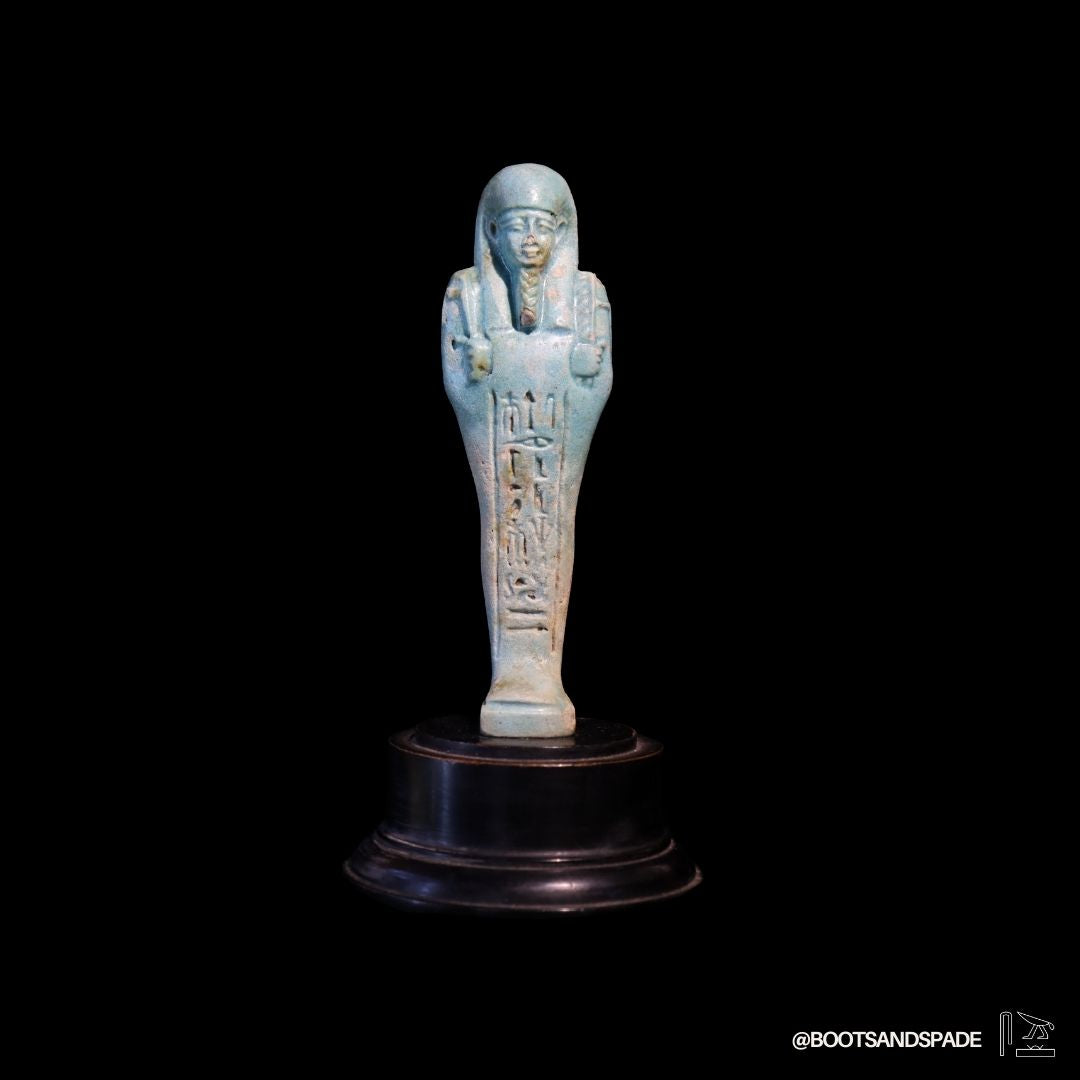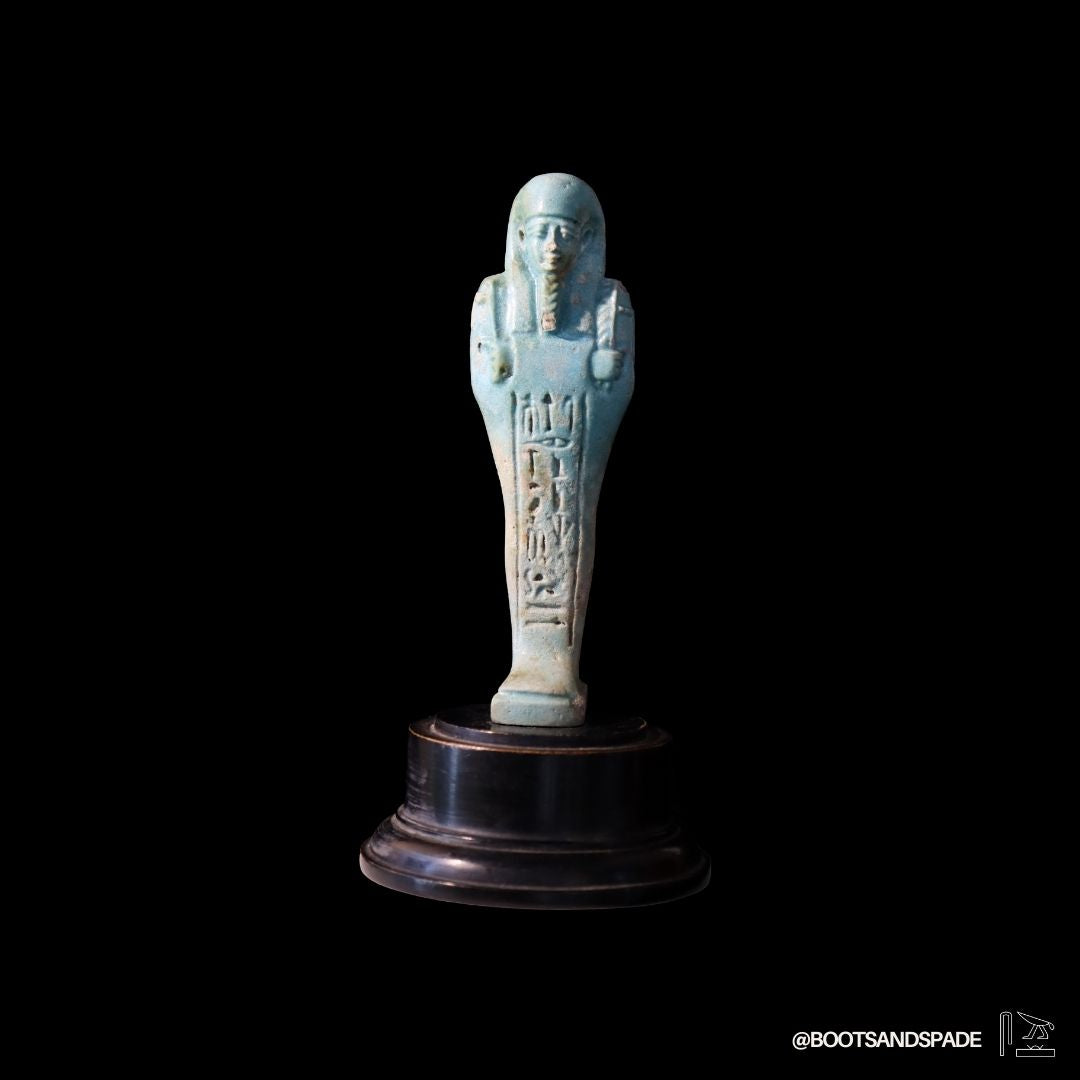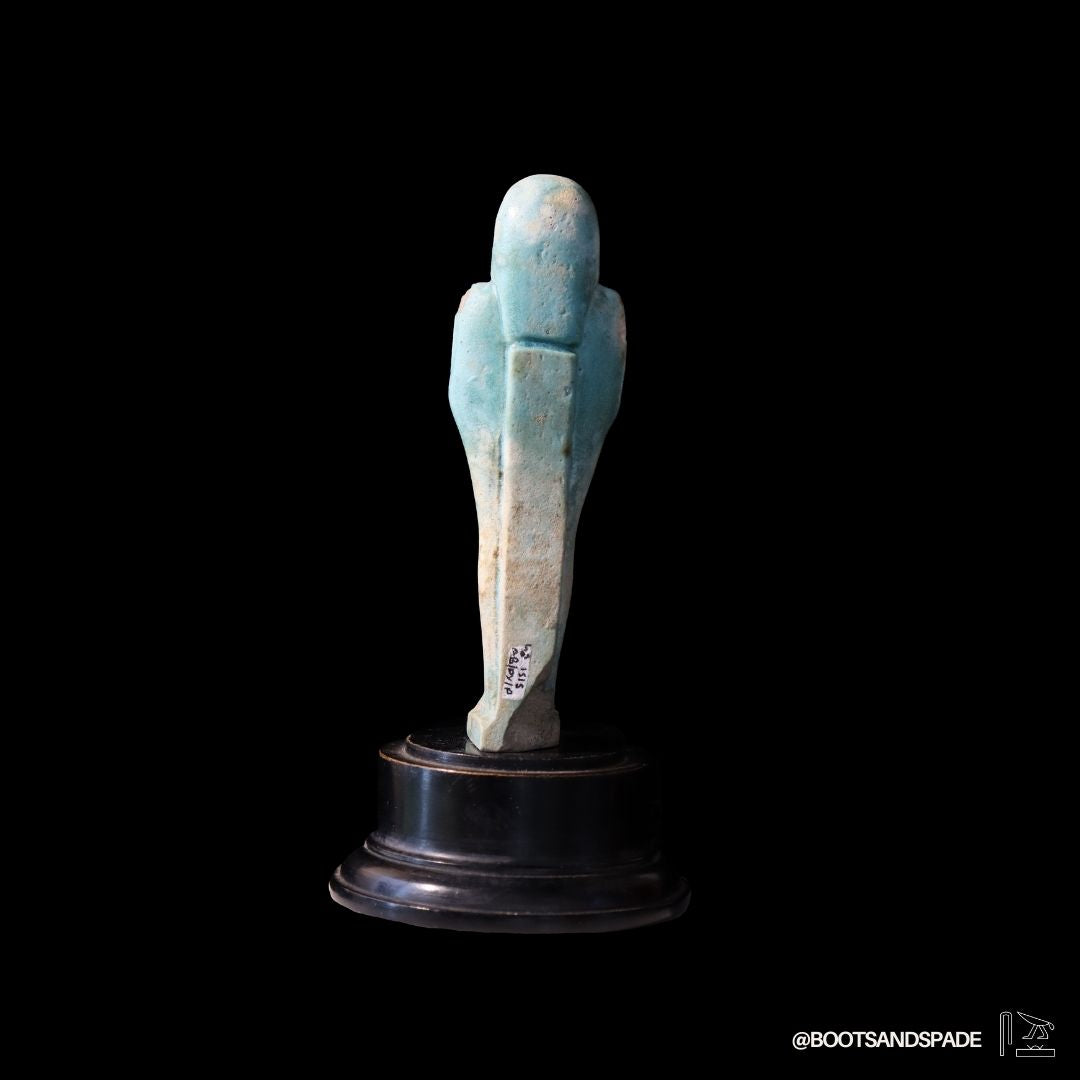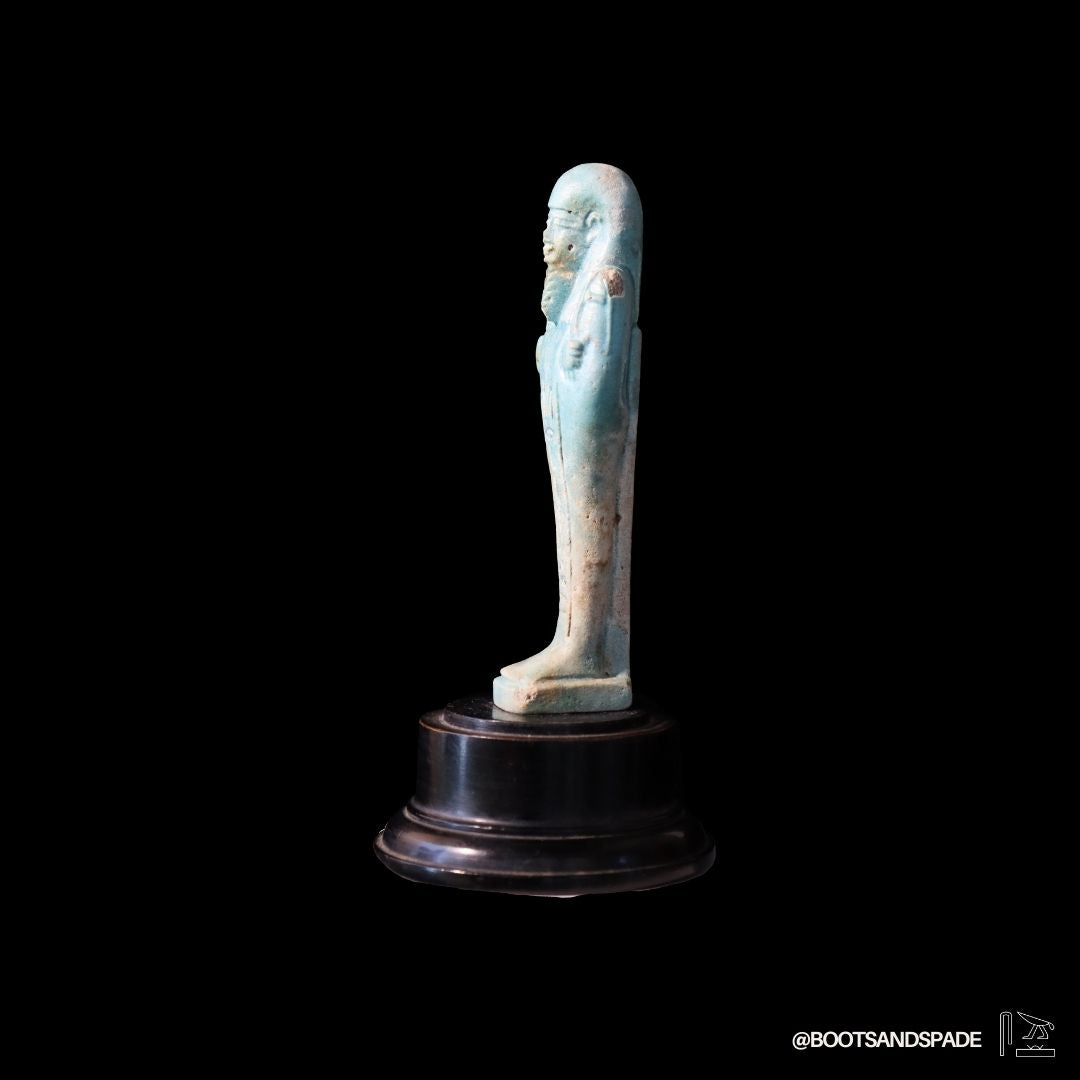Boots & Spade
Egyptian Faience Ushabti for Royal Isetemkheb
Egyptian Faience Ushabti for Royal Isetemkheb
Couldn't load pickup availability
Blue faience ushabti for Isetemkheb, born of Tasheritentaihet, from the 26th Dynasty (664-525 B.C.). The ushabti is in molded mummiform wearing a tripartite wig and plaited divine beard. The detailed face is defined with an incised mouth, intact nose, and large almond-shaped eyes. This ushabti has crossed arms over the chest, hands protruding from the shroud, holding an adze and hoe. The legs are inscribed with the heiroglyphics stating, "Illuminate the Osiris, Isetemkheb (sometimes written as Asetemkheb), born of Tasheritentaihet, true of voice."
Ushabtis were intended to serve the deceased in the afterlife, in this case Isetemkheb. The belief was that they would come to life and act as servants for the deceased person in the afterlife. The text addresses the ushabti in a way that compelled it to answer the call and fulfill its duty. This particular ushabti has a hoe and adze but lacks a basket. As a result, it was likely the "overseer" for other harvester ushabtis.
Isetemkheb was a name reserved for royal and noble women. This artifact as well indicates that the deceased was an extremely important woman in ancient Egyptian society as ushabtis, especially of this caliber, were largely only afforded to nobility.
The royal name, near perfect condition, and lack of basket makes this ushabti an extremely rare find for an Egyptian collection.
Purchase of this ushabti comes with custom stand and storage box along with digital transcription of heiroglyphics, transliteration, and translation from our in-house archeologists. Scientific drawings from our in-house archeologists available for an additional fee.
Provenance
Provenance
ex-UK private collection formed in late 19th-early 20th centuries.
Dimensions
Dimensions
Share










